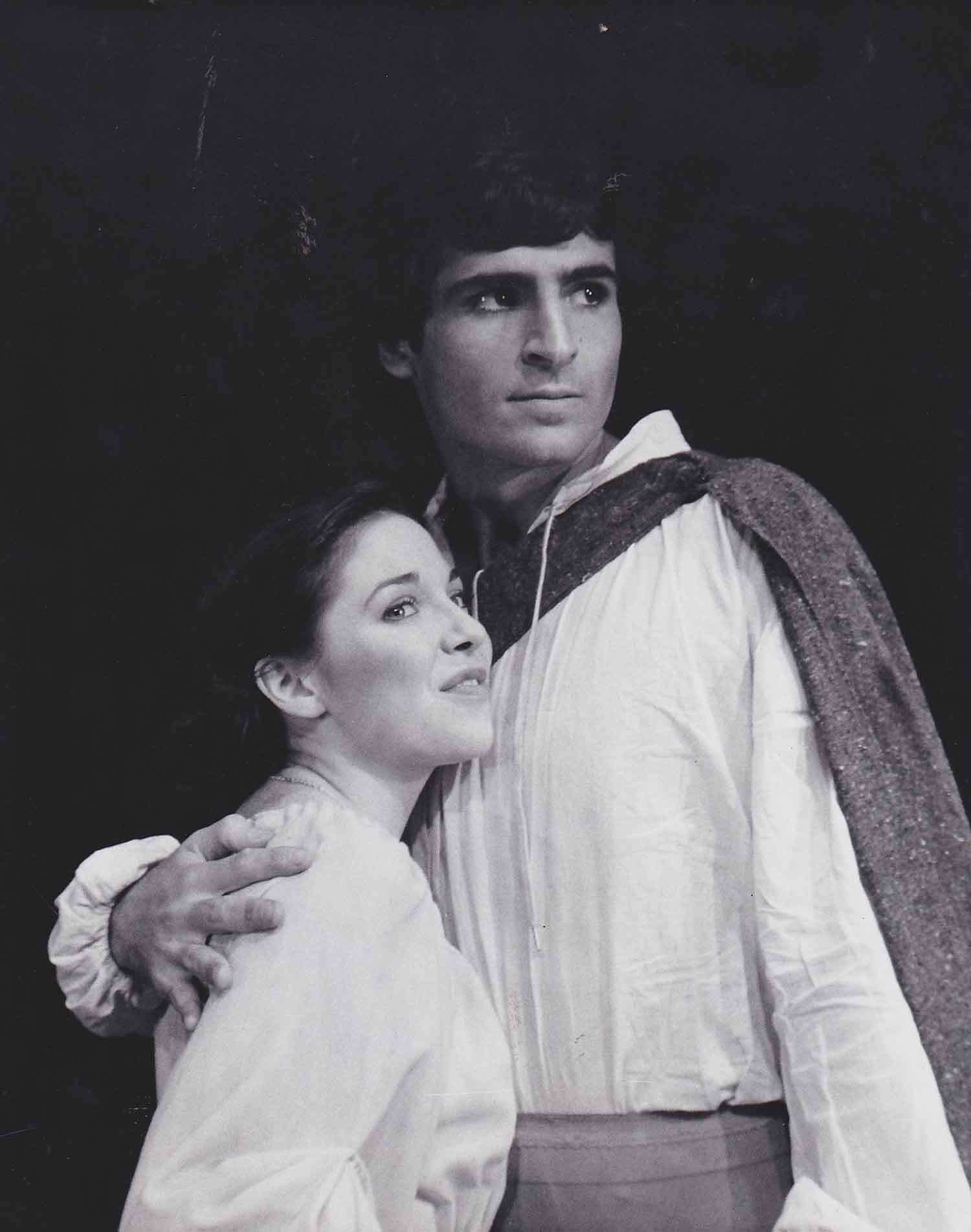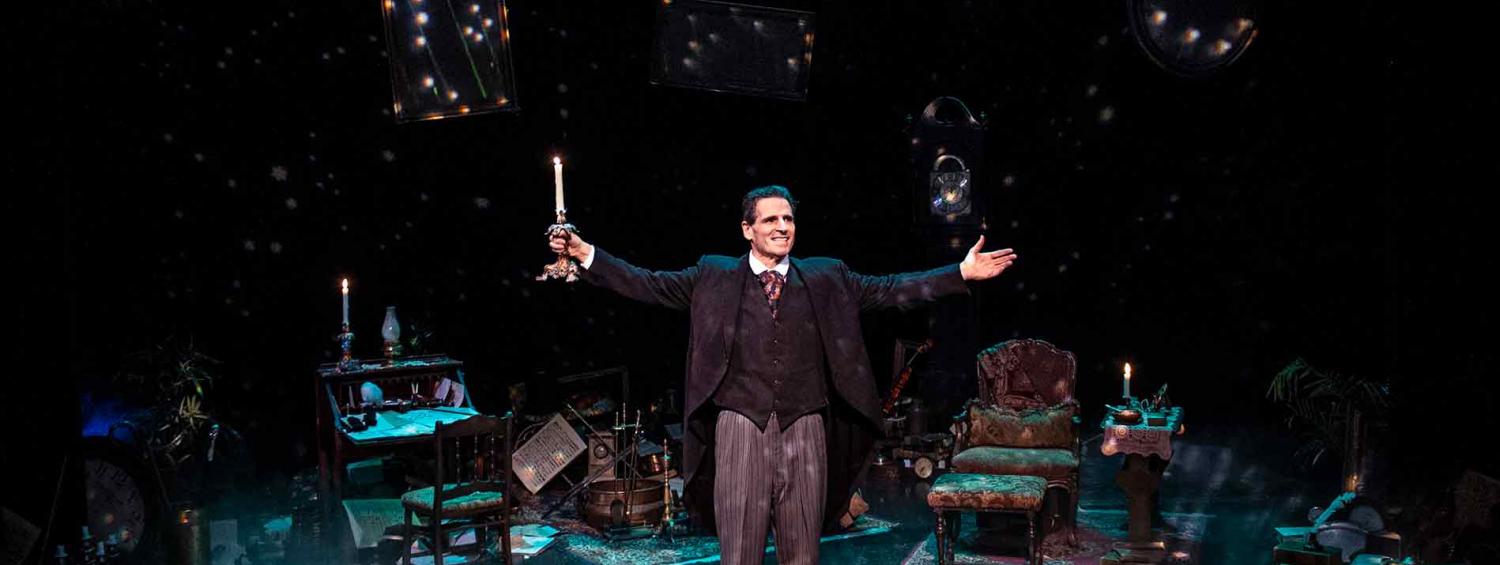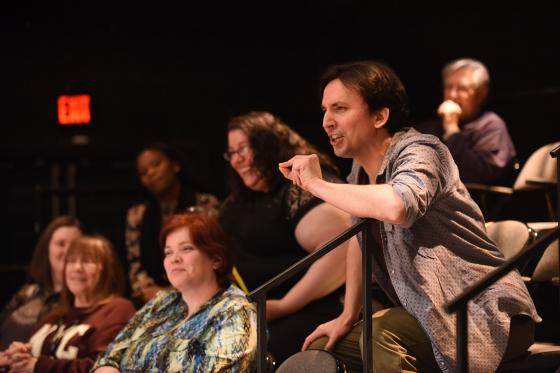I recently had the opportunity to chat with A Christmas Carol's one-and-only (and I do mean “only”) Paul Morella. Paul is a fixture of the Washington, DC theatre community, and he’s an alumnus of National Players (Tour 30). We got to chat about his memories from life on the road.
Q: How did you find your way to becoming a Player?
A: I was in the graduate program at Catholic University and Bill Graham was heading it. I had seen the Players perform and was very intrigued by it. At the time Graham approached me about it, I wasn’t really interested because I was about to get married. But he encouraged me to just audition. And sure enough, I listened and ended up moving up my wedding. I thought of it like I was going off to war in a way. But yeah, I auditioned, got it, and made the decision to go.
That was the first year that that they brought in National Artist Management Company (Barry and Fran Weissler). They were madmen in terms of booking but didn’t look at the map, so we were driving all night sometimes. We had to almost have a mutiny at one point; they ended up having to fly out and meet us because we needed a break and we felt that they were taking advantage of the fact that the show must go up regardless. But yeah, it was quite an experience.
Q: I know you played Romeo, but who did you play in Taming of the Shrew?
A: I played Curtis. But I also ran everything. There were moments where I was the only person not on stage so I ran the lights and sound. And I was also generally everybody’s understudy in that show. We had an interesting experience where the guy playing Lucentio got sick in the middle of the performance. And I went on for him in the second act. But I didn’t know the lines. So I went on and I would just say things that I remembered but they ended up being other people’s lines and so they had to cover. So I looked like the only person who knew my lines.
I had a funny experience once meeting Alan Wade when I was interviewing with him for a teaching gig at GW. And he was like, “Oh I see you were a Player. I was a Player.” I said, “Oh yeah? I sort of looked at it as like going off to Vietnam. You know you go, and you come back, but nobody really cares that you were out there, you know knocking yourself out.” And he takes a pause and goes, “you know I served in Vietnam.” And I’m thinking oh no. And he goes, “and tour was worse.”
But the beauty of it was that any tour I went on after National Players was a cakewalk.
Q: So you had two vans and a truck?
A: Yeah, there were fifteen of us. Divided in the two vans and the truck. An International Harvester truck. They got that because they thought it would be very reliable. But it broke down all the time. And out of fifteen people, we only had three truck drivers. At first I thought it was cool but the novelty wore off pretty quickly.
Since we had an odd number, one person would get a single bedroom and you would always covet the single. And because we had four women, it was always a guy who got the single. Eventually, we got a little progressive and mixed up genders so the girls could have a chance at the single. But we were just at each other’s throats by the end of it. But again, you have a deep respect for one another that you endured it together. There were strong bonds that were formed.
Q: How long of a tour was it?
A: We started rehearsing in July and went out early September. And we were back in May, with a little time off in the holidays.
Q: How did going on tour set you up for what came next?
A: The MFA program I was in took two years if you were full time. And the players fit nicely between those two years. I came back with a bit of a chip on my shoulder and a better understanding of what the professional world looked like. I don’t think I appreciated the training and experience as much at the time as I do in retrospect.
Interestingly enough, when I got back and I got out of grad school, the first show that I did was Romeo and Juliet again at Studio Theatre, which Joy Zinoman directed. On tour, it was all about the language and the technicalities and academic structures. But Joy was more interested in the earthy, gutsy lives of the characters. So it was a radically different approach, and it was fascinating to play the same role in such a different production.
I still remember them (the players) all. They’re like the bonds you make in high school where the emotions are still raw and unformed, but yet they’re strong. Not unlike the whole Romeo and Juliet thing. I remember some things from tour so vividly, but then can’t remember something that happened last week.
Some things were close. Sometimes we had to drive all night to get to the next venue. But we really took pride in the fact that the show always went up.
-

I dug in the archives and found this picture of Paul playing Romeo opposite Linda Early’s Juliet.






